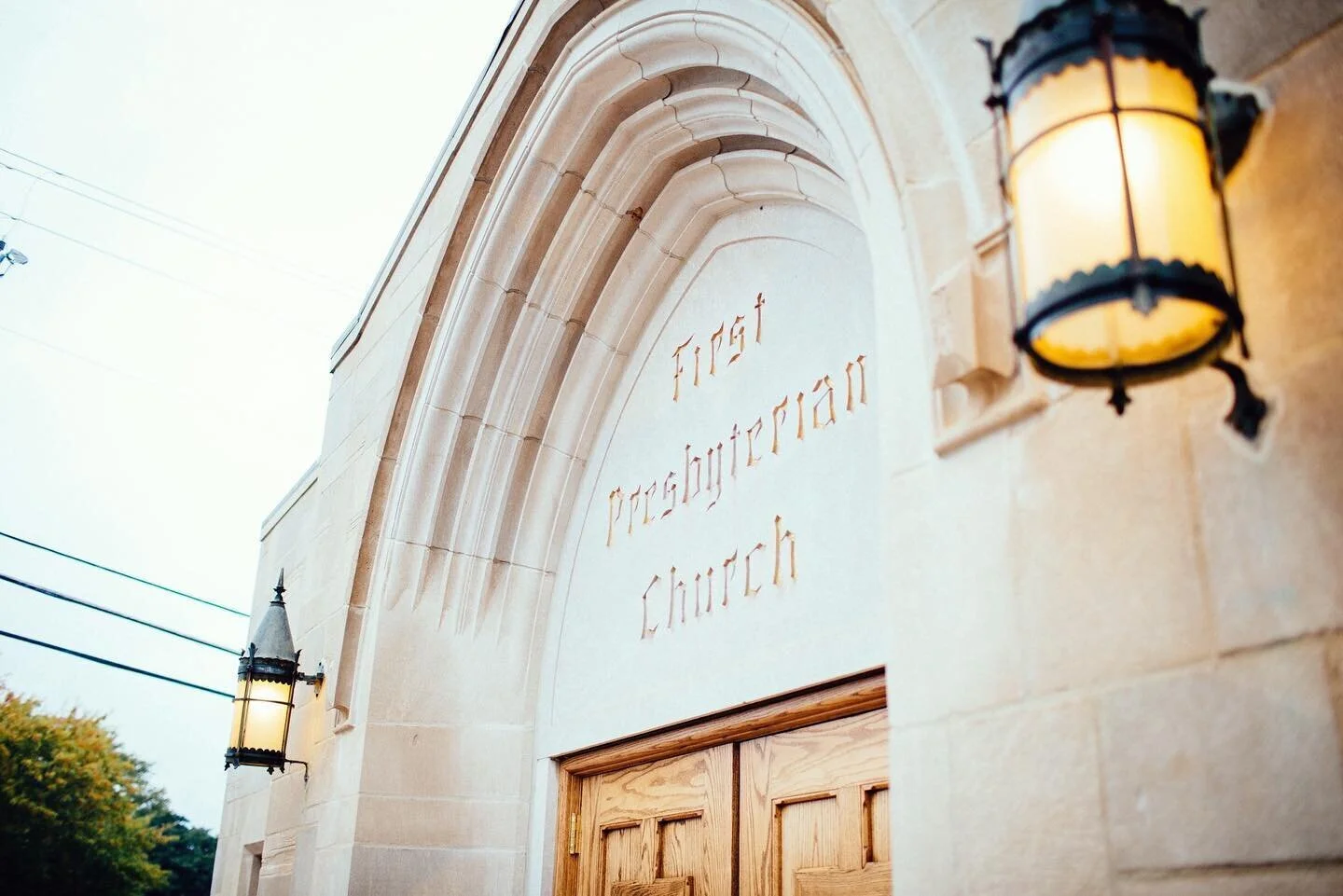That All May Know
It was a hot summer day in LaGrange, Georgia. June of 2019, to be exact. A group of 15 Presbyterians gathered in a living room to discuss the state of things. Thoughts and opinions flew around as quickly as the food flew off the table, with an inescapable truth hanging in the air: things were changing. They had been for years. The question was: what could be done about it?
LaGrange is situated on the far western fringes of the state of Georgia, a stone’s throw across the Chattahoochee River from Lanett, Alabama. Head an hour south and you’ll hit Columbus. Drive 45 minutes down I-85 to the southwest, you’ll cross state lines and wind up on the loveliest little village on the plains in Auburn. Drive the opposite direction for 45 minutes and you’ll arrive at the world’s busiest airport in Atlanta. Not that the residents of LaGrange need reminding of the airport’s proximity; look up at any point during the day and you’ll more than likely see a Delta jet on final approach.
The city and Troup County, for the moment, lie just beyond the outer edges of Atlanta’s suburban sprawl. It seems only a matter of time before LaGrange joins the throng of cities and towns serving as bedroom communities for the metro area. In some senses it already does, as a number of locals make the hour-plus commute to work at Hartsfield-Jackson or Midtown or Buckhead.
It’d be easy to wonder why; that is a lot of mileage, after all. But the fact is, LaGrange offers the rare combination of small town charm with big-city amenities (though many gripe the area still needs a Target). The local college serves as a bastion for a thriving arts scene. Entertainment and social options abound at the city’s two breweries, performances of LaGrange’s fully-outfitted symphony orchestra (highly unusual for a town this size), a top-notch amphitheater, and the Great Wolf Lodge water park. Within the past year, LaGrange has hosted a number of events attracting out-of-towners and locals alike, including the inaugural Rockweave music festival and the annual Azalea storytelling fest.
As for economic development, there’s a lot to like. Buttressed by industry from Kia America in neighboring West Point and its numerous suppliers, a number of Fortune 500s have a presence in the county. It doesn’t hurt to have The Callaway Foundation at your doorstep, whose considerable resources have transformed the community.
Still, LaGrange has a sleepy, southern rustic-ness about it, and like any other town, it has its problems. Once a thriving mecca for Georgia cotton, the city’s economic foundation was built on the backs of slave labor. With it came the inevitable oppression of black and brown folk, including the 1940 lynching of Austin Callaway that recently garnered national attention after local officials— including the Chief of Police— offered an apology for the murder. To its credit, LaGrange has recently proven progressive in confronting its racial past, with organizations like Racial Trustbuilding Inc. creating space for honest conversations about privilege, inequality, and bigotry. In the wake of recent protests stemming from the death of George Floyd, the city’s mayor, Jim Thornton, proposed changes to local legislation that had discriminated against persons of color. Still, the ill effects of slavery and Jim Crow continue to rear their ugly heads, as the town’s wealth predominantly winds up in the pockets of rich whites.
Churches, along with a bevy of non-profits and faith-based charities, have long been at work addressing poverty here. A conglomeration of downtown congregations provides free lunches on a daily basis. Parishes dotting the county host medical clinics, coach on fiscal health, and adopt local elementary schools for mentoring and teaching.
Meanwhile, residents of the county have at their disposal countless organizations supporting nearly every need. Lack clothing? There are resources for that. Seeking shelter from domestic violence? That’s available, too. Struggling with abuse or addiction? You need look neither far nor wide to find help. To say Troup County is blessed by an abundance of health and human resources is an understatement.
If there’s a shortcoming, it’s with communication. Which isn’t to say it’s not happening. A local publication called The Street Beat offers a comprehensive rundown of the work being done in Troup County. Local police, led by the aforementioned Chief Lou Dekmar, host regular meetings with organizational leadership and officials from the city and county.
The problem isn’t that there’s a lack of communication; it’s that there is so much to communicate. People and organizations seeking to tell their stories get lost in the confluence of voices trying to make themselves heard. Meanwhile, citizens requiring assistance or those wanting to help are so inundated by names and numbers that it’s difficult to know where to begin.
The question is: what can be done about it?
There is little doubt the church is changing. Not just in LaGrange, but everywhere. Statistics and scholarly articles abound revealing a drop in religious attendance and participation. At the same time, pages and pages can be found researching the growth of the “nones” and “dones,” or those who either claim no religious affiliation or are done with religion altogether. Gone are the so-called “glory days” when church was firmly front and center in American life acting as society’s moral compass. Instead, the church now finds itself navigating a Post-Christian culture during which it has been left scrambling for the sense of place it once took for granted. That ecclesiastical wrongs from previous generations— ranging from clerical abuse to complicity with individualized and institutionalized forms of racism— have been brought to light has no doubt rocked the church’s boat, leaving it, at times, seemingly rudderless.
Meanwhile, the advent of new technologies has forced the church to discern different and best practices for fulfilling its mission. In an age when the Amazons and Ubers of the world disrupt what once were viable mainstays — bookstores and taxis, respectively — the church no longer can presume things will remain just as they always have. Especially now, after COVID-19 has managed to disrupt everything over the course of a few months. Not only has the pandemic taken away the week-in, week-out ritual of gathered, in-person worship, but it has also accelerated the church’s reliance upon the digital as a medium for ministry.
Not that any of this was on the radar of those 15 Presbyterians — collectively known as the Vision Team — when they gathered in June 2019. They knew things were changing; they just didn’t know how quickly.
They wrestled with some of the classic questions: How do we attract younger families? What will it take to increase the size of our youth group? If LaGrange grows, how will we grow with it?
What they didn’t ask was, “How will social distancing affect our spirituality?” Or, “What needs to be done to expand our digital footprint before the pandemic?” Or, “What will the ‘new normal’ look like?”
At the very least, though, the team was talking change. They understood there was a seismic shift happening underneath the church’s feet. They knew things would need to be re-thought, re-evaluated, and possibly re-formed. And they had a hunch it would mean doing things differently than they’d been done before.
They just didn’t know what that meant.
“I didn’t know they do that!”
“Yeah, they’re in charge of it. They run the show.”
It was May of 2020. A group of four from the Vision Team gathered — masked — in the small dining room of the Presbyterian Church. For months, the team had been kicking around ideas about how the church’s mission might be changing, and after weighing different possibilities, they were at a standstill.
About that time, the conversation turned to a community ministry which had long been run by members of the church. Not that everyone in the group knew it; in fact, most of them didn’t.
Which was when the light bulb came on.
“You know,” one person said, “there’s a lot happening in this community nobody knows anything about.”
“You’re right!” another responded. “It’s impossible to keep up with everything!”
Then, after a particularly pregnant pause, someone spoke up.
“What if that’s what we’re supposed to do? What if our mission is to tell the stories of good news happening in LaGrange and Troup County? We have all of this new equipment we’re buying. Let’s use it!”
The team nodded their heads in agreement. The church had recently approved a considerable sum of money to be invested in high-resolution cameras, computers, and broadcast accoutrements for the worship livestream, a project that was green-lit with haste at the outset of the pandemic. In addition, the Presbyterians had also approved purchasing equipment for a podcasting studio. Not that the podcast was a new idea; for months, the congregation’s two pastors had kicked around the notion of starting a show. It would be called Lewis & Broad — a nod to the crossroads at the corner of the church’s property — and it would offer a deep dive into local LaGrange lore from the perspective of southern, mainline, progressive faith.
Of course, that’s all it was expected to be: two preachers doing what preachers do, talking about things they don’t always fully understand. Yet what became clear during the morning hours of that May 2020 meeting was Lewis & Broad could be much more than that. Potentially, this endeavor could provide something the church and community needed to hear: news. Good News.
And thus, Lewis & Broad Media (LBM) was born: to tell the stories that need telling, to advocate for justice where it needs advocating, to share love where it needs sharing. As a purely online enterprise, Lewis & Broad will feature stories via podcast (beginning later this year), photography, filmmaking, and written word (e.g. long-form articles, poetry, creative writing). The fledgling media outfit will be directed by 2020 UGA grad in advertising and religion, LaGrange native, and faithful Presbyterian Leighton Parker, who will work with contributors to develop content and stories that can be posted on LBM’s website (which, for the time being, may be found at fpclagrange.org/lewisandbroad; the goal is for LBM to one day have its own site).
The hope is that LBM will serve as a means by which individuals and organizations can express how they are working in the community. It will foster awareness for how to connect with or fight for the causes seeking to help society’s most vulnerable. It will offer space for people to give voice to that which ails or impassions them. And, perhaps, it will function as a different way for the church to be the church.
First Presbyterian has a vision statement saying, “That all may know God’s love.” Things may be changing. There may be no new normal; only new. Yet in that newness, Lewis & Broad aims to fill the void by proclaiming news — good news — so that all in LaGrange, Troup County, and beyond may truly know.



